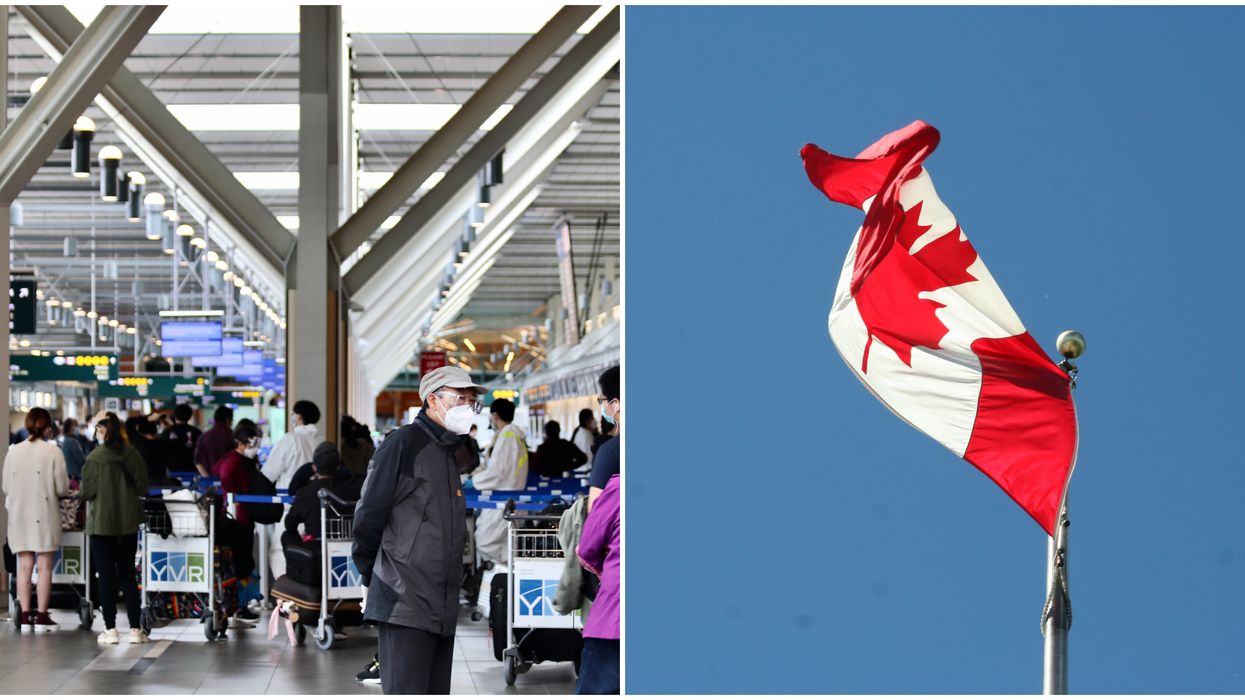Here's Everything About How Family Members & Foreign Nationals Can Come To Canada Now

There's a lengthy process to come here. With Canada's border restrictions exemptions, more people can come into the country like extended family members, foreign nationals and international students. Here's everything you need to know about the situation and how people can be granted entry into Canada.
Editor's Choice: Dr. Tam Says It's Time For Canadians To Buy A Smaller Turkey & Take Thanksgiving Online
Who can come to Canada with new border exemptions?
The federal government is working to reunite families and allow entry into the country for compassionate reasons and educational purposes.
With the new rules, certain extended family members of Canadian citizens and permanent residents are able to come into the country again.
That includes people in exclusive relationships, children, siblings and more.
Foreign nationals will be allowed into Canada for compassionate reasons like if a loved one has a life-threatening illness.
There is a process for these travellers to get authorization by the government so if you have relatives who want to come here, they can't just hop on a plane.
Nobody should make travel plans until they have that authorization.
Starting on October 20, international students can come into the country again if their school has a COVID-19 readiness plan in place.
Who's considered an extended family member and what do they have to do?
Immigration, Refugees and Citizenship Canada has released lots of information about who can be considered an extended family member and a step-by-step process on how to be granted entry.
Someone is an extended family member if their relationship to a Canadian citizen or permanent residents is one of the following:
- an exclusive dating relationship of at least one year where they've spent time in-person with who they're dating at some point in the relationship
- a non-dependent child (adult child)
- a grandchild (dependent child of a non-dependent adult child)
- a sibling, half-sibling or step-sibling
- a grandparent
There are also other exemptions for people who are related to the spouse or exclusive romantic partner of a Canadian citizen or permanent resident.
First, the family member who is in Canada has to fill out an application for authorization and statutory declaration.
After that, they send it to their foreign relative for their signature.
Then, it's sent back to the person in Canada, and they have to sign the form by solemn declaration in front of an authorized official like a lawyer or notary.
After that, it gets sent back to the relative trying to travel to be used as evidence of the relationship when requesting authorization from Immigration, Refugees and Citizenship Canada.
Getting authorization also depends on travel documents like visas.
Finally, the person looking to come to the True North has to bring a copy of the application and the written authorization with them when they travel.
Once someone has a solemn declaration, people have six months to travel to Canada.
Immediate family members don't need written authorization but they do need proof.
What do foreign nationals have to do?
For foreign nationals who want to come into the country for compassionate reasons, they need to get authorization from the Public Health Agency of Canada.
Compassionate reasons can be a number of things including:
- being present during the final moments of life for a loved one
- providing support to a person deemed critically ill
- providing care to a person who medically requires support
- attending a funeral or end-of-life ceremony
These travellers can apply for approval for an exemption from border restrictions and a limited release from mandatory quarantine.
There are steps to take to get authorization.
First they have to complete an application and provide supporting documents like a Letter of Required Support or a death certificate.
Then the person wishing to come has to apply for and get a site visit authorization if they need to leave quarantine to attend a funeral in a private location.
Then there's the Traveller Application form which requires contact information and details about why the person is asking to come and/or be exempt from quarantine.
It won't be submitted unless documentation like the Letter of Required Support and the Site Visit Authorization is complete.